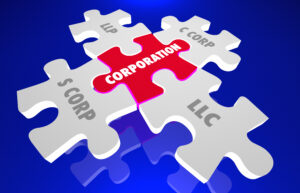If You Win the Big Jackpot Expect the IRS to Coming Knocking
Many people from all over the country enjoy gambling. Whether it’s big time poker, playing the slots or betting on sporting events, there are a lot of people who enjoy games of chance and the idea of winning something for nothing. Of course, most of the time, the house wins and the player walks away empty handed. When a player does win, it’s usually cause for a celebration. However, the big victory can be short-lived when the winner discovers that the taxman wants his piece of the pie as well.
In fact, the IRS is looking to really crack down on gambling earnings. As it stands rights now, when a person plays the slots he or she has to report any earnings of $1,200 or more to the IRS. The machine even stops working as soon as someone wins. It won’t start again until after a casino worker has presented the lucky winner with the necessary tax papers. However, recently the IRS threw out the idea of lowering that threshold down to just $600.
To no one’s surprise, many gamblers hate the idea. Realistically, they have a good point, too, because most people who play the slots never win enough to make up for their losses, so why should they have to pay taxes if they get lucky once or twice? Time will tell if the IRS end up getting the threshold lowered or not, but gamblers and casinos alike oppose the idea. For small time gamblers the idea seems unfair, and casinos say it would only take the fun out of the game for players.
Tax S-corporation
Saving Taxes with an S Corporation An S corporation election allows the shareholders to preserve the benefit of limited liability for the corporate form while at the same time being treated as partners for federal income tax purposes. Ever wondered why so many small businesses operate as an S corporation? Simple. An S corporation saves…
Sec1045 Partnerships
Sec1045 Partnerships This document contains final regulations relating to the application of section 1045 of the Internal Revenue Code (Code) to partnerships and their partners. These regulations provide rules regarding the deferral of gain on a partnership’s sale of qualified small business stock (QSB stock) and a partner’s sale of QSB stock distributed by a…
Sec179 Businessequipment
Updated: 11/12/10 Most new business equipment can be either depreciated over its useful life or expensed immediately under Internal Revenue Code Section 179. The maximum deduction is based on the following schedule for the date in which the tax year begins. Each 1040, whether Single or Joint, is limited to one maximum. 179 expenses passed…
Sec1244 Small Business Stock Sales
Sec1244 Small Business Stock Sales Section 1244 of the Internal Revenue Code, the small business stock provision, was enacted to allow shareholders of domestic small business corporations to deduct as ordinary losses, losses sustained when they dispose of their small business stock. In order to receive this beneficial treatment, the Code prescribes specific requirements for:…



